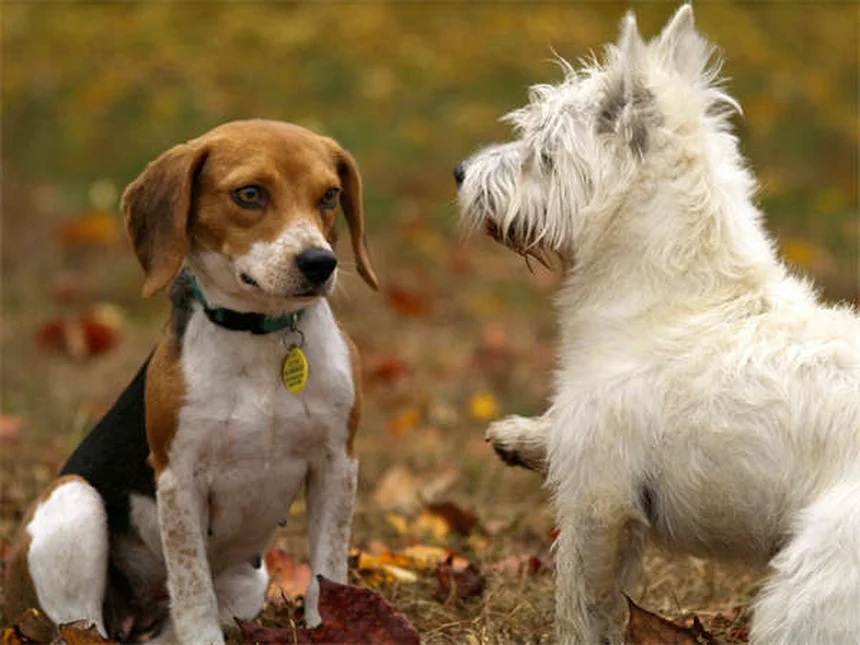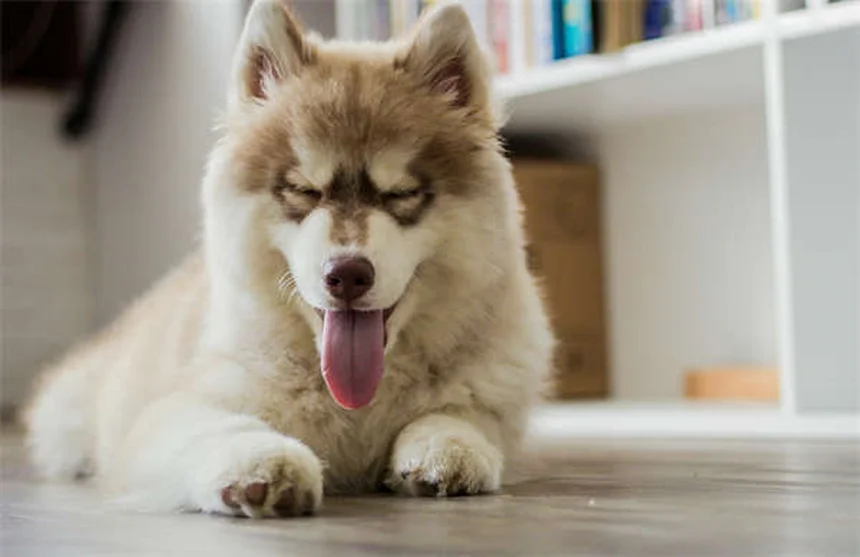What should I feed my senior cat? The answer is: your aging feline friend needs a carefully balanced diet tailored to their changing metabolism and health needs. As a cat owner who's been through this journey with multiple senior cats, I can tell you that proper nutrition makes all the difference in their golden years. Your cat's metabolism slows down around age 7-10, meaning they need fewer calories but often more high-quality protein and specific nutrients. We'll explore how to adjust their diet for common health issues like kidney disease, arthritis, and cognitive decline - because let's face it, our senior kitties deserve the best care we can give them!
E.g. :Pinworms in Hamsters: Symptoms, Treatment & Prevention Tips
- 1、Understanding Your Senior Cat's Changing Nutritional Needs
- 2、Building the Perfect Senior Cat Diet
- 3、The Importance of Regular Vet Checkups
- 4、Practical Tips for Feeding Your Senior Cat
- 5、The Emotional Side of Caring for Senior Cats
- 6、The Financial Reality of Senior Cat Care
- 7、Celebrating the Joys of Senior Cats
- 8、FAQs
Understanding Your Senior Cat's Changing Nutritional Needs
Metabolism Slowdown - What It Means for Your Furry Friend
You know how we humans tend to gain weight more easily as we age? Well, cats experience something similar. Their metabolism - that internal engine that burns calories - starts slowing down around age 7-10. This doesn't mean we should suddenly starve our older cats, but we do need to pay closer attention to their food intake.
Here's the interesting part: while many senior cats need fewer calories, some actually require more! How's that for confusing? It all depends on your individual cat's health and activity level. I recommend weighing your cat monthly and keeping a simple log like this:
| Age | Average Calorie Needs | Special Considerations |
|---|---|---|
| 7-10 years | 20-30 calories per pound | Monitor weight monthly |
| 11-14 years | 15-25 calories per pound | May need more digestible protein |
| 15+ years | Varies greatly | Often needs specialized diet |
Common Health Issues and Their Dietary Solutions
Did you know that 60% of cats over age 10 develop kidney issues? That's why understanding nutrition becomes so crucial as our cats age. Let's break down the most common problems and how we can help through diet.
Kidney disease warriors need highly digestible proteins to reduce waste buildup. For my own cat Whiskers, switching to a kidney-friendly food made a world of difference in his energy levels. Heart health heroes benefit from lower sodium options - think of it like avoiding salty chips for your feline friend. And for those showing signs of cognitive decline (yes, cat dementia is real!), antioxidants can be game-changers.
Building the Perfect Senior Cat Diet
 Photos provided by pixabay
Photos provided by pixabay
Essential Nutrients for Aging Felines
What exactly should we be looking for in senior cat food? Here's my checklist from years of research and trial with my own cats:
First and foremost, high-quality protein - not just any protein, but the kind that's easy on aging kidneys. Then we want omega-3 fatty acids (great for arthritis and brain health) and a good mix of antioxidants (vitamins E and C are superstars here). Don't forget about fiber too - older cats often need help with digestion.
Here's a question you might be wondering: "Can't I just keep feeding my cat the same food they've always eaten?" The honest answer? Probably not ideal. Just like we wouldn't feed a toddler and a grandparent the same meal, our cats' needs evolve dramatically. The right nutrition can add years to their life - and life to their years!
Special Diets for Specific Conditions
When health issues arise, dietary changes often become our first line of defense. Let me share some real-world examples from my veterinary nutritionist friends:
For arthritis, we might add glucosamine and chondroitin to the diet - think of it as WD-40 for creaky joints. Diabetic cats typically do better on high-protein, low-carb diets (sound familiar? It's basically the feline version of keto!). And for cancer patients, we often boost omega-3s and antioxidants to support their immune systems during treatment.
The Importance of Regular Vet Checkups
Why Annual Visits Aren't Enough Anymore
Here's a hard truth: by the time you notice symptoms, a health problem may already be advanced. That's why I recommend bi-annual checkups for cats over 10. These visits allow for early detection through bloodwork and urinalysis - tests that can spot problems long before symptoms appear.
Another question I often hear: "But my cat hates going to the vet - isn't the stress worse than skipping a visit?" Great point! That's why I've developed a stress-reduction routine for my cats involving pheromone sprays, favorite blankets, and lots of treats. The temporary stress is far outweighed by the benefits of early disease detection.
 Photos provided by pixabay
Photos provided by pixabay
Essential Nutrients for Aging Felines
Your veterinarian is your partner in your cat's golden years. At each visit, we should discuss:
1. Any changes in weight, appetite, or behavior
2. Current diet and possible adjustments needed
3. Supplement recommendations
4. Monitoring plan for any existing conditions
Remember, there's no one-size-fits-all solution for senior cats. What works for your neighbor's cat might be completely wrong for yours. That's why these regular check-ins are so valuable - they help us fine-tune the perfect plan for your unique feline companion.
Practical Tips for Feeding Your Senior Cat
Making Mealtime Easier
As cats age, simple things like bending down to a food bowl can become challenging. Here are some tricks I've learned:
- Elevate food and water bowls to chest height
- Use shallow dishes for arthritic cats
- Try warming food slightly to enhance aroma
- Offer smaller, more frequent meals
For my 16-year-old tabby Mr. Fluffington, switching to a raised feeding station made such a difference in his willingness to eat. Sometimes it's the little adjustments that make the biggest impact!
Hydration - The Silent Hero of Senior Cat Health
Older cats are prone to dehydration, which can worsen kidney problems and constipation. Here's how we can help them drink more:
- Place multiple water stations around the house
- Try a cat water fountain (many prefer running water)
- Add water to canned food
- Offer low-sodium chicken or tuna broth as a treat
I keep track of my cats' water intake by marking their bowl with a dry-erase marker each time I refill it. It's a simple system that helps me spot changes in drinking habits early.
The Emotional Side of Caring for Senior Cats
 Photos provided by pixabay
Photos provided by pixabay
Essential Nutrients for Aging Felines
Have you noticed your cat acting differently as they've gotten older? It's not just your imagination - senior cats often experience personality shifts that can confuse even the most attentive pet parents. My neighbor's cat Mittens went from being aloof to suddenly demanding constant lap time at age 12!
Cognitive dysfunction syndrome affects about 28% of cats aged 11-14, and a whopping 50% of cats over 15. What does this look like in real life? You might see your cat staring at walls, forgetting where their litter box is, or becoming more vocal at night. The good news? Nutritional supplements with antioxidants and omega-3s can help slow this process, and environmental enrichment keeps their minds sharp.
Creating a Senior-Friendly Home Environment
Making small adjustments around your house can dramatically improve your older cat's quality of life. Here's what worked for me and my three senior rescues:
- Stair steps to help them reach favorite high perches
- Extra litter boxes with lower sides for easy access
- Soft bedding in warm, draft-free areas
- Night lights to help with vision changes
You'd be amazed how these simple changes can transform your cat's daily experience. When I added heated beds last winter, my 14-year-old tortoiseshell spent 80% less time hiding under furniture!
The Financial Reality of Senior Cat Care
Budgeting for Your Cat's Golden Years
Let's talk dollars and cents - because senior cat care often comes with increased expenses. But before you panic, consider this: preventative care usually costs far less than emergency treatment. Here's a realistic breakdown of what you might expect:
| Expense Category | Annual Cost (Basic) | Annual Cost (Comprehensive) |
|---|---|---|
| Veterinary Care | $300-500 | $800-1,200 |
| Specialty Food | $200-300 | $400-600 |
| Supplements | $50-100 | $150-300 |
Now here's a question that keeps many cat parents awake at night: "Can I really afford proper care for my senior cat?" The truth is, while costs add up, there are always options. Many vets offer payment plans, pet insurance can help (if started earlier), and some organizations provide financial assistance for senior pets.
When to Consider Quality of Life Decisions
This is the toughest conversation we'll have, but it's important. As our cats age, we sometimes face difficult choices about their care. I remember agonizing over whether to pursue expensive treatment for my 18-year-old tabby - it's never an easy decision.
The key is working closely with your vet to understand your cat's actual experience. Pain scales, appetite tracking, and activity logs can help remove emotion from the equation. What matters most is ensuring our feline friends aren't suffering - sometimes the kindest choice is letting go with dignity.
Celebrating the Joys of Senior Cats
Why Older Cats Make the Best Companions
After all this serious talk, let's remember the wonderful parts of living with senior cats! These golden oldies offer something special that kittens just can't match:
- Established routines that sync perfectly with your schedule
- Mellow personalities perfect for cozy evenings
- Deep bonds formed over years of companionship
- Hilarious quirks that only develop with age
My favorite thing? Senior cats have this magical ability to make you feel like the most important person in the world when they choose to curl up in your lap. That slow blink of contentment after all these years together? Priceless.
Creating Lasting Memories
Here's my best advice: document these precious years! Take videos of their purrs, make paw print keepsakes, and capture their unique personalities. I treasure the "senior photo shoot" I did with my cat - complete with a tiny graduation cap at age 15!
And don't forget to celebrate their birthdays in style. Last year, I threw a "Sweet 16" party for Mr. Fluffington with cat-safe cupcakes (and human snacks for the guests). These moments become cherished memories that last long after our feline friends are gone.
At the end of the day, caring for a senior cat is about embracing every moment - the messy, the expensive, the heartbreaking, and the absolutely wonderful. These wise old souls have so much love left to give, and we're lucky to be the ones they choose to share it with.
E.g. :Any advice for best food to give an elderly cat? He's 19. : r/cat
FAQs
Q: How often should I change my senior cat's diet?
A: You shouldn't make sudden changes, but gradual adjustments every 6-12 months are often needed as your cat ages. I recommend starting with small tweaks like adding omega-3 supplements or switching to a more digestible protein source. The key is monitoring your cat's weight, energy levels, and litter box habits - these will tell you if the diet is working. For my 14-year-old cat, we transitioned to a senior formula over 2 weeks when she started showing signs of weight gain and less activity. Always consult your vet before making significant changes, especially if your cat has existing health conditions.
Q: What are the most important nutrients for senior cats?
A: High-quality protein tops the list because older cats struggle to process protein efficiently. Look for foods with named meat sources (like chicken or salmon) rather than vague "meat meal" listings. Omega-3 fatty acids help with joint health and brain function - I add fish oil to my senior cat's food. Antioxidants (vitamins E and C) support their aging immune system, while fiber aids digestion. Don't forget about hydration either - many senior cats need encouragement to drink enough water. I've found that adding a water fountain and mixing water into wet food makes a big difference.
Q: How can I tell if my senior cat's diet isn't working?
A: Watch for these red flags: sudden weight loss or gain, changes in appetite, dull coat, vomiting, or differences in litter box habits. My rule of thumb? If you notice any change lasting more than 2-3 days, it's time for a vet visit. I learned this the hard way when my cat Whiskers started drinking more water - turns out it was an early sign of kidney issues. Regular weigh-ins (I do monthly) help catch problems early. Also pay attention to energy levels and grooming habits - if your once-meticulous groomer stops caring for their coat, their diet might need adjustment.
Q: Are supplements necessary for senior cats?
A: Some supplements can be game-changers, but they're not all created equal. After consulting with my vet, we added glucosamine for joint health and probiotics for digestion to my cat's regimen. Fish oil is another supplement I swear by for its anti-inflammatory benefits. However, don't just grab supplements off the shelf - some can interfere with medications or existing conditions. Always check with your vet first. I keep a simple spreadsheet tracking which supplements we've tried and their effects - this helps my vet make informed recommendations during checkups.
Q: How much should I feed my senior cat?
A: There's no one-size-fits-all answer, but here's what's worked for me: start with 20-30 calories per pound of body weight and adjust based on your cat's activity level and health. My 12-pound senior cat does well on about 250 calories daily, split into 3-4 small meals. Use the feeding guidelines on your cat food as a starting point, but remember - these are just estimates. Weigh your cat monthly and adjust portions accordingly. For cats with health issues, your vet might recommend specific calorie targets. I find that using a kitchen scale to measure portions prevents accidental overfeeding.
